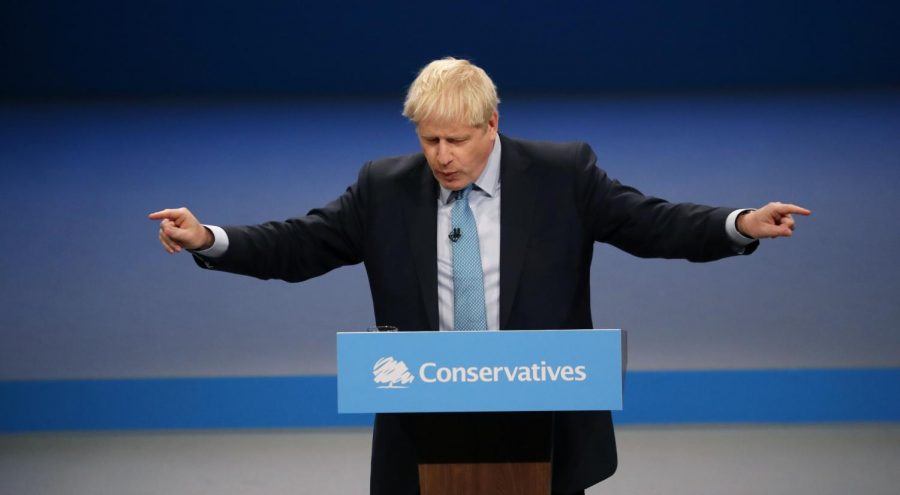Brexit Grinds Along After Supreme Court Ruling
Oct 3, 2019
On Monday, Sept. 9, British Prime Minister Boris Johnson asked the Queen of the United Kingdom to suspend, or “prorogue,” Parliament for five weeks. By doing this, Johnson intended to curtail the efforts of politicians to stall or even stop the U.K.’s likely exit from the European Union, commonly called “Brexit.”
In order for a prorogation to occur, the prime minister must advise the ruling monarch and when parliament is reopened, the monarch will make a speech outlining the government’s agenda for the next session.
British Members of Parliament don’t vote on the prorogation, as it is typically not a political strategy or maneuver. Traditionally, it is a customary event that tends to happen every September as a time for political parties to hold conferences. The last time that a government used proroguing to combat opposition was in 1948, when Prime Minister Clement Attlee passed a measure decreasing the power of the House of Lords, according to the Institute for Government, a think tank in the U.K. that does research and analysis about government.
Johnson aimed to use the prorogation to cut out lawmakers who disagreed with his plot to leave the E.U. by the deadline on Oct. 31. In this case, he intended to remove the U.K. from the E.U. by the end of October no matter what the cost may be, deal or no deal.
However, the British Supreme Court decided unanimously on Sept. 24 that the prime minister had acted unlawfully in suspending Parliament. Opposition Labour Party officials immediately jumped on the ruling, calling for Johnson to resign.
“He thought he could do whatever he liked — just as he has always done, all his life,” Labour Party leader Jeremy Corbyn said, according to The Washington Post. “He thinks he’s above us all.”
Johnson was in New York for the United Nations General Assembly while the ruling from the British Supreme Court came out, prompting his abrupt return to the U.K. He said he has the “utmost respect for [the] judiciary,” but does not think it was the “right decision,” according to The Telegraph.
The unwritten British constitution does not give to its Supreme Court the same constitutional oversight role that the U.S. Constitution gives to the U.S. Supreme Court. In the U.K., there exists an idea called “parliamentary sovereignty.”
“As a parliamentary system, the British regime does not formally divide judicial, legislative and executive powers among competing institutions as does the U.S. regime,” John Carroll Political Science Professor Dwight Hahn said. “That is not to say, of course, that such a division could not emerge or that it would be without historical precedent.”
During the heated debate over the future of Brexit, Paula Sherriff of the Labour Party urged Johnson to cease the use of “offensive, dangerous or inflammatory language for legislation that we do not like.” She included the murder of Jo Cox as evidence.
Jo Cox was a Labour Party lawmaker who was killed shortly before the 2016 Brexit referendum by a man shouting things such as “death to traitors” and “Britain first!” Since then, many female MPs say they have received threats for not being in favor of Brexit. This group of MPs accuse Johnson of encouraging the hate through his incendiary language in British Parliament.
“Let me tell the prime minister that they often quote his words — ‘surrender act,’ ‘betrayal,’ ‘traitor,’ — and I for one am sick of it,” Sherriff said during parliamentary proceedings. “We must moderate our language and it has to come from the prime minister first.”
Johnson dismissed concerns about threats and abuse, quoting his language as “humbug” in the House of Commons.
“The best way to honor the memory of Jo Cox, and indeed the best way to bring this country together, would be, I think, to get Brexit done,” Johnson said during parliamentary proceedings.













